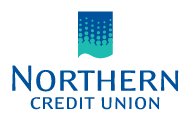Refinancing your home can be a smart financial move, allowing you to replace your current mortgage with a new one that better suits your needs.
Whether you're looking to reduce your monthly payments, obtain a lower interest rate, or consolidate debt, refinancing offers the flexibility to make these changes. However, before diving into the refinancing process, there are a few important things to consider.
1. Review Your Financials
Time has likely passed since you last applied for a mortgage, so it's essential to understand that the refinancing process may look different this time around. Take some time to go over your budget and accounts to understand which payments and expenses are currently affecting your financial situation the most. Gathering information about your existing loans and credit cards will be useful during this process.
Another important aspect to consider when refinancing is the value of your home, as it may have increased over the years. It would be a good idea to look into what other houses in your neighborhood are selling for and compare them to your own property, as the value of your location might have gone up.
2. Understand the Costs
Refinancing involves breaking your existing mortgage agreement, and this means potential penalty fees. It's crucial to be aware of these costs before proceeding. Thankfully, some situations allow you to add these fees to your overall mortgage balance, sparing you from having to pay them all at once.
3. Reasons to Refinance
There are several common reasons why people choose to refinance their mortgages. Understanding these reasons can help you determine if refinancing is the right choice for you.
Reduce Payments and/or Interest Rates: If you're feeling the financial strain, refinancing can offer relief by lowering your mortgage payments. Adjusting the length of your amortization period (the time you have to repay your mortgage) can help reduce your monthly payments. If current interest rates are lower than the rate on your existing agreement, refinancing can save you money. However, it is crucial to have a clear understanding of all the costs, fees, and penalties to make sure that the potential savings are greater than the fees involved.
Home Renovations: Instead of turning to lines of credit or loans, many homeowners choose to refinance their mortgages to access their home equity at a lower interest rate. This allows them to borrow money for renovations or improvements.
Consolidate High-Interest Debt: Paying off high-interest debt can be challenging. By consolidating this debt within your mortgage, you can obtain a lower interest rate and potentially pay it down faster. While this may not always be the best option, mortgage rates are typically lower than other forms of debt and can help you reach your financial goals faster.
Remember, refinancing is a process that should be approached thoughtfully and with the advice of expert advisors. By understanding the potential benefits, costs, and reasons to refinance, you can make an informed decision that aligns with your financial goals. Take control of your mortgage and explore the possibilities of refinancing by booking an appointment today.


